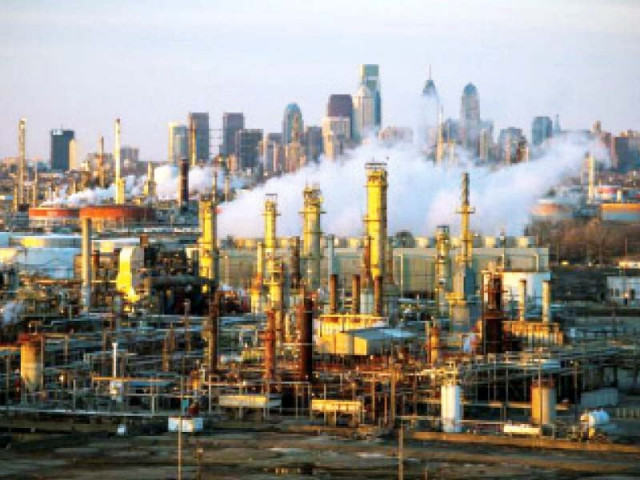Refineries warn of lower oil output
Say power sector’s reluctance to lift furnace oil will lead to reduction in petrol, diesel output

The refusal from power producers to purchase furnace oil is likely to push the country towards a petrol, high-speed diesel and jet fuel crisis as refineries are going to slash their production.
Refineries have warned the government about the looming oil crisis if the power sector remains unwilling to take furnace oil supplies.
Along with the refineries, Pakistan State Oil (PSO), whose receivables have crossed Rs400 billion, finds itself in a financial crunch due to the pressure to import two furnace oil cargoes.
PSO has imported the two furnace oil cargoes in November, following firm demand from the power sector for the period November 2021 to February 2022, but this has resulted in piling up of stocks.
In a letter sent to the government, PSO complained that fuel procurement by Genco/ independent power producers (IPPs) had not been in line with demand during the entire season and “this deviation is hampering their supply chain planning, especially in the current month, as fuel stock lifting has almost reduced to zero in November”.
PSO pointed out in the letter that the Genco/ IPPs had almost negligible stocks, especially at Thermal Power Station (TPS) Muzaffargarh, TPS Jamshoro, Hubco and other IPPs.
It warned that any further delay in the lifting of fuel stocks by power plants would affect the entire supply chain, causing significant losses to the oil marketing company on account of demurrages and inventory costs, besides posing a serious threat to the continuation of refinery operations.
Similarly, Pak Arab Refinery (Parco), in a letter sent to the Petroleum Division, said that the procurement of furnace oil had slowed down significantly over the past few days, ie 1,180 tonnes a day against daily production of 3,000 tonnes.
Parco said that if the slow pace of furnace oil purchases continued, oil stocks at the refinery would rise to high levels in the next few days, making it difficult to operate the facility at higher output, which would affect supplies of other petroleum products as well.
National Refinery Limited (NRL) also conveyed to the government that the countrywide usable stock of high sulphur fuel oil (HSFO) was continuously on the rise.
It said that HSFO consumption had been 37% lower in the first eight days of November compared to the month’s target and the inventory would increase hugely if cargoes of loaded ships awaiting berths and those expected to arrive were also included.
The slow lifting of furnace oil stocks from the refineries would reduce the throughput and negatively affect supply of other oil products, it said.
PSO’s financial crunch
Receivables of state-run oil marketing company PSO have crossed Rs400 billion, triggering financial crunch for the firm.
Despite posting a handsome profit in the last financial year, PSO has continued to face the challenge of circular debt due to the inability of customers to pay bills on time.
Recently, the company announced the highest-ever after-tax profit of Rs29.1 billion for financial year 2020-21.
Power sector is a major defaulter of PSO which has to recover Rs194.283 billion along with late payment surcharge.
PSO has also played a pivotal role in the liquefied natural gas (LNG) sector. It entered into another agreement with Qatar Petroleum under a G2G arrangement to supply an additional 3 million tons of LNG over a period of 10 years.
This contract will add additional volumes to an already executed 15-year long-term sale-purchase agreement, with total supplies of 6.75 million tons per annum.
However, the company is facing circular debt in this sector as well. It is supplying LNG to Sui Northern Gas Pipelines Limited (SNGPL) for onward distribution among consumers. SNGPL has to pay Rs164.759 billion to PSO on account of LNG supply.
Published in The Express Tribune, November 28th, 2021.
Like Business on Facebook, follow @TribuneBiz on Twitter to stay informed and join in the conversation.



















COMMENTS
Comments are moderated and generally will be posted if they are on-topic and not abusive.
For more information, please see our Comments FAQ